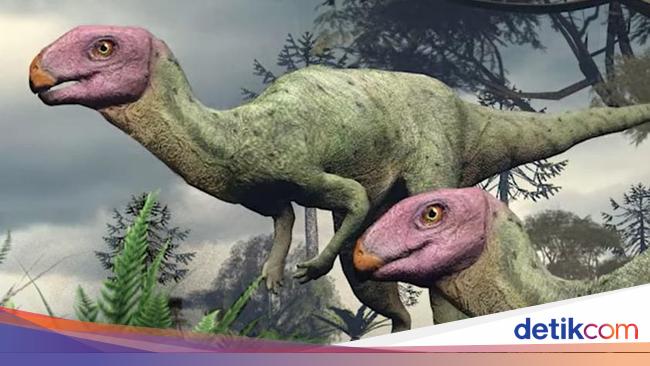Jakarta –
The rate of aging between mammals, including humans, and many species of reptiles and amphibians is not the same. This difference is thought to be due to the dominance of male dinosaurs millions of years ago.
According to microbiologist João Pedro de Magalhães from the University of Birmingham, when dinosaurs ruled the Earth, much smaller mammals had to be able to reproduce quickly in order to survive. This means that genes for longer life may have been discarded as evolution progressed.
“Some of the earliest mammals were forced to live at the bottom of the food chain, and likely spent 100 million years during the time of the dinosaurs evolving to survive through rapid reproduction,” he explains.
Loss of Repair Enzymes from UV Damage
The research, published in the journal BioEssays, writes that human ancestors in the lineage of eutherian mammals appear to have lost certain enzymes during the dinosaur era, namely enzymes that repair damage caused by ultraviolet light.
Interestingly, even marsupials and monotremes lack at least one of three UV repair enzymes, known as photolyases. According to researchers, it is difficult to say whether this has anything to do with their relatively shorter life spans.
One possible reason for the loss of this enzyme is that mammals become more active at night to stay safe. Then millions of years later, these enzymes were replaced by sunscreen cream. This is an example of the repair and restoration mechanisms that humans should have.
There are also other signs, for example the teeth of certain reptiles, including alligators, can continue to grow throughout their lives. Of course, humans cannot do this and again this is probably the result of genetic selection going back hundreds of thousands of years.
“We see extraordinary examples of repair and regeneration in the animal kingdom,” said de Magalhães.
“This genetic information was not necessary for early mammals that were lucky not to become T-rex food,” he continued.
Of course, some mammals can live up to triple digits, including whales and humans. Whether we did so under constraints imposed by our short-lived ancestors or whether we have somehow evolved to be unaffected by our ancestors could be a topic of future research.
Understanding more about the factors behind aging will always be beneficial in fighting age-related diseases, including dementia and stroke, and the genetics behind barriers to longevity may have more to teach us here.
“While currently only a hypothesis, there are many interesting angles to take, including the prospect that cancer is more common in mammals than other species due to the rapid aging process,” said de Magalhães.
Watch Video “4 Dinosaur Diseases That Humans Also Experience“
(nah/pal)
2023-12-03 12:30:00
#Scientists #Estimate #Humans #Lived #Short #Due #Domination #Dinosaurs


